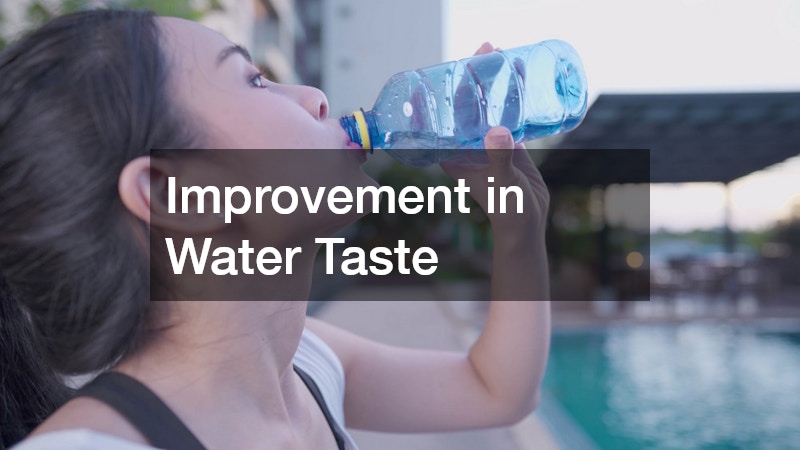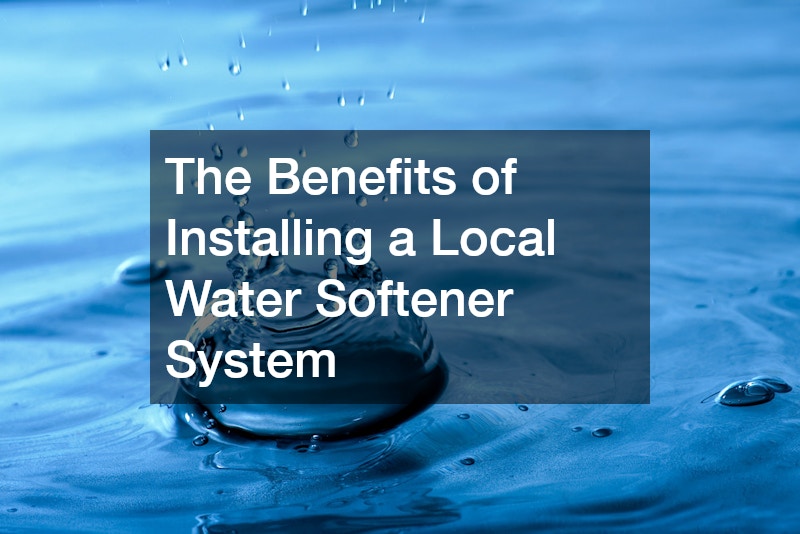Water softener systems have become increasingly popular due to their significant positive impact on water quality. By removing minerals that cause water hardness, these systems enhance both the efficiency of water use and the performance of home appliances. For homeowners, understanding the benefits of these systems helps them make informed decisions about improving their water quality.
The key function of a water softener is to combat hard water, which can cause scale buildup, soap scum, and reduced effectiveness of soaps and detergents. Hard water is prevalent in many locales, making the need for effective water softening solutions critical.
As a result, installing a local water softener system can result in numerous health and economic benefits.
Ion Exchange Process
The functionality of a water softener relies on the ion exchange process, which effectively removes calcium and magnesium ions from the water. These minerals are the culprits behind water hardness, causing undesirable effects in domestic environments. During ion exchange, the hard water flows through a tank filled with resin beads charged with sodium ions.
As the hard water moves through the resin beads, a swapping action occurs where the calcium and magnesium ions are replaced with sodium ions. This process transforms the hard water into soft water, eliminating problems associated with mineral buildup and scaling. This exchange significantly reduces the mineral content of the water, making it softer and more beneficial for daily use.
Maintenance and Setup
The successful operation of a water softener system requires careful installation and routine maintenance. Setting up a water softener involves connecting it to your water supply, usually near where it enters your home, ensuring that all incoming water is treated. This setup generally requires professional assistance to ensure optimal performance and compliance with local regulations.
Maintenance of a water softener system involves replenishing the salt supply, periodic cleaning of the tank, and timely service checkups to prevent any potential malfunctions. Regular maintenance extends the life of the system and guarantees that the quality of softened water remains high. Additionally, monitoring the system for signs of inefficiency can prevent the recurrence of hard water issues.
Cost and Efficiency
While the initial investment of a water softener system might seem notable, it offers substantial long-term savings. The cost of operating the system is minimal once installed, especially considering the reduction in energy bills and prolonged lifespan of household appliances. Over time, the savings from reduced energy consumption and appliance wear and tear can outweigh the setup and maintenance costs.
Efficient water softeners use minimal amounts of salt and water, optimizing the resource use without sacrificing performance. A properly maintained system ensures maximum efficiency, curtailing the expenses associated with hard water issues. By investing in a high-efficiency model, homeowners can expect even greater savings while enjoying the myriad benefits of softened water.
Improvement in Water Taste
In addition to its functional advantages, softened water can significantly improve the taste of tap water by removing the mineral content that often alters flavor. The presence of calcium and magnesium in hard water can sometimes impart a slightly metallic or mineral taste. By removing these elements, softened water results in a cleaner, more refreshing taste.
Households with softened water often report a noticeable improvement in the taste of their drinking water, which can also enhance the flavor of beverages and food. This improved palatability can encourage increased water consumption and better hydration, supporting overall health and wellness. For many, the superior taste is a key benefit of investing in a water softener system.
Reduction in Mineral Build-Up
One of the environmental benefits of a water softener system is the reduction in mineral build-up in plumbing and appliances. When hard water flows through pipes, it can lead to significant mineral deposits, affecting water flow and efficiency. Over time, this build-up can cause blockages and require extensive repairs or replacements of piping systems.
By preventing this build-up, softened water minimizes the need for frequent maintenance on pipes and appliances, thereby reducing waste and energy use required for repairs. In doing so, a water softener system can contribute to the long-term sustainability of a household’s plumbing infrastructure. Investing in a water softener system reduces resource use over time, as less energy is needed to heat and move water through less restricted systems.
Installing a local water softener system offers numerous benefits, from improving water quality and extending appliance lifespan to supporting personal health and conserving energy. These systems represent a smart investment for households struggling with the numerous issues associated with hard water. Through a balanced assessment of cost and benefits, homeowners can decide how best to integrate water softeners into their home maintenance strategy.
Ultimately, the decision to install a water softener system hinges on the need for improved water quality and enhanced household efficiency. By recognizing the myriad benefits of softened water, families can enjoy a healthier home environment while contributing positively to the global challenge of sustainable water use. As awareness grows, softened water systems are set to become a staple in modern homekeeping.



